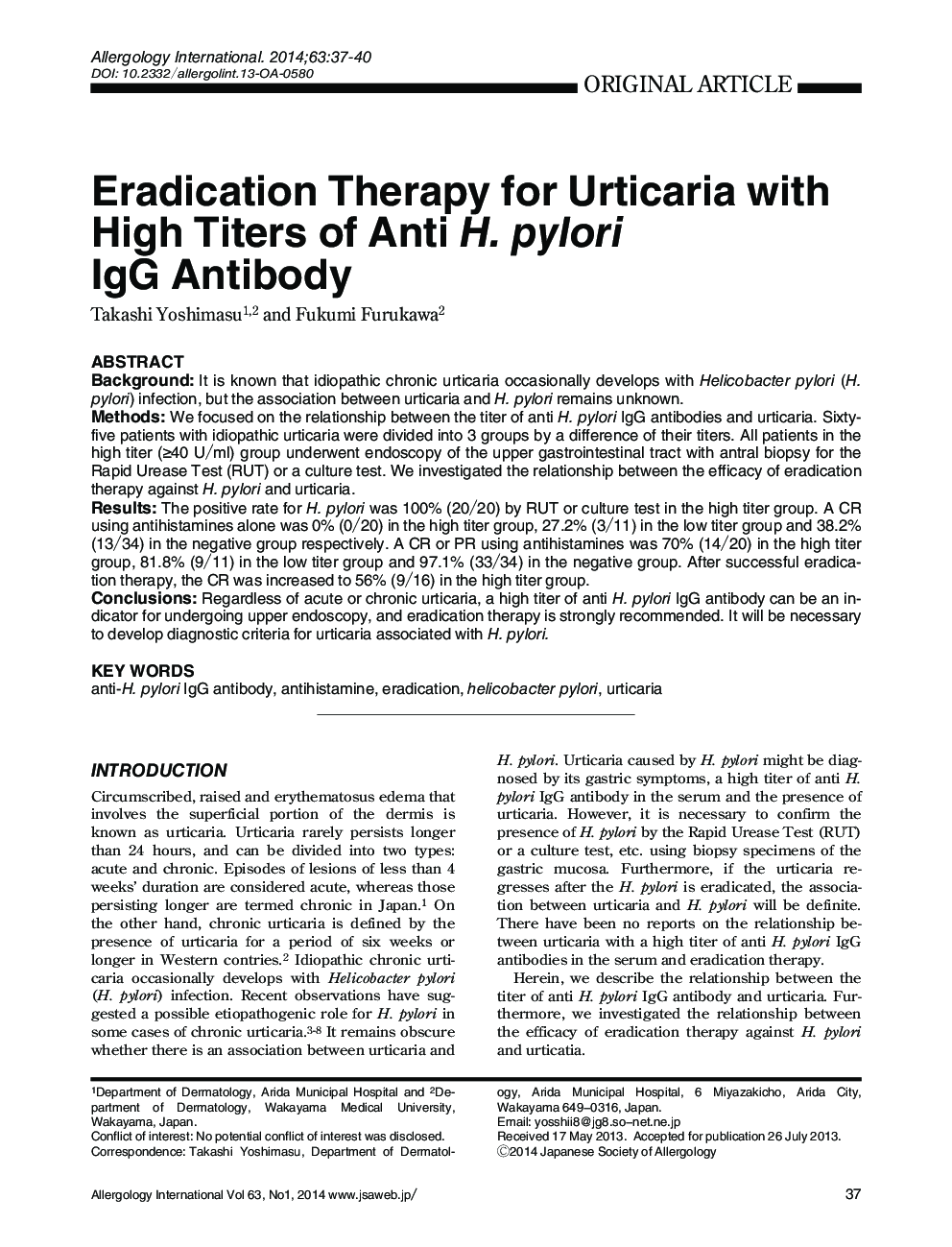| Article ID | Journal | Published Year | Pages | File Type |
|---|---|---|---|---|
| 3340655 | Allergology International | 2014 | 4 Pages |
ABSTRACTBackgroundIt is known that idiopathic chronic urticaria occasionally develops with Helicobacter pylori (H. pylori) infection, but the association between urticaria and H. pylori remains unknown.MethodsWe focused on the relationship between the titer of anti H. pylori IgG antibodies and urticaria. Sixty-five patients with idiopathic urticaria were divided into 3 groups by a difference of their titers. All patients in the high titer (≥ 40 U/ml) group underwent endoscopy of the upper gastrointestinal tract with antral biopsy for the Rapid Urease Test (RUT) or a culture test. We investigated the relationship between the efficacy of eradication therapy against H. pylori and urticaria.ResultsThe positive rate for H. pylori was 100% (20/20) by RUT or culture test in the high titer group. A CR using antihistamines alone was 0% (0/20) in the high titer group, 27.2% (3/11) in the low titer group and 38.2% (13/34) in the negative group respectively. A CR or PR using antihistamines was 70% (14/20) in the high titer group, 81.8% (9/11) in the low titer group and 97.1% (33/34) in the negative group. After successful eradication therapy, the CR was increased to 56% (9/16) in the high titer group.ConclusionsRegardless of acute or chronic urticaria, a high titer of anti H. pylori IgG antibody can be an indicator for undergoing upper endoscopy, and eradication therapy is strongly recommended. It will be necessary to develop diagnostic criteria for urticaria associated with H. pylori.
